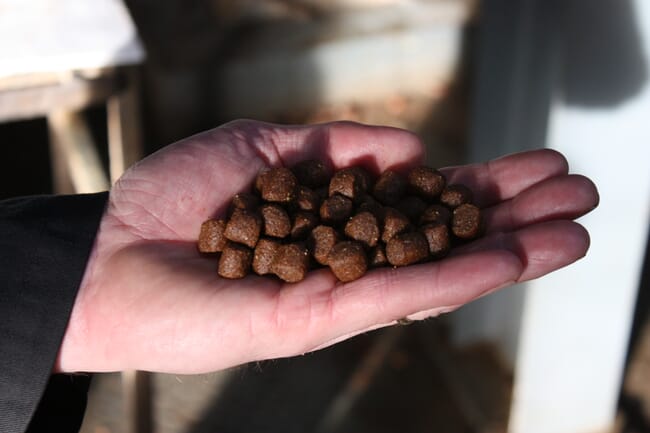Called the Millennial Salmon Project, it is primarily funded by the Research Council of Norway and will feature input from Nofima, InnovaFeed, Corbion Algae Ingredients, Cargill, SINTEF Ocean and Auchan.
The goal of the four-year project is to create the most sustainably-farmed salmon using novel ingredients from the circular economy and with a low carbon footprint while addressing the initiative’s “millennial principles of life” – living healthy; leading a purposeful live; trusting peers; and considering their societal and environmental impacts.

The project will study two
alternative feed ingredients – protein-rich, insect-based feed ProtiNova from
InnovaFeed, and algae-based omega-3s, AlgaPrime DHA from Corbion, both of which
offer minimal land use.
The evidence-based study will test the levels that are required to optimise physical and nutritional needs of salmon, discover the practical and functional properties of both alternatives, as well as demonstrate the environmental and societal aspects of the suggested innovations. SINTEF Ocean will be conducting a life cycle analysis of the resulting Millennial Salmon feed.
“This project is one critical piece to pave the way for a healthier and more sustainable salmon. We are pleased to collaborate with leading organizations across the value chain. By joining forces, we are accelerating the innovation in the sector to find new solutions to increase the flexibility in the choice of sustainable raw materials for future fish feed,” said Katerina Kousoulaki, project leader and senior scientist at Nofima, in a press release.
The Millennial Salmon Project was formed as a response to the critical need to accelerate the global momentum around sourcing, scaling and developing sustainable, alternative solutions for aquaculture and to address changing consumer behaviour. The FAO predicts the world will reach 9 billion people by 2050 and, with production growth of over 5 percent a year, aquaculture is expected to play a critical role in assuring global food security. To meet this need, the FAO urges the industry to catalyse change, calling on it to produce more nutritious food using less resources, emitting lower carbon dioxide emissions and protecting biodiversity and the resilience of ecosystems.
The Millennial Salmon Project addresses this industry demand by working to provide by 2025 an integrated solution to salmon farmers that balances the raw materials in the feed basket and provides greater flexibility from the use of finite marine resources and land-demanding resources. The Millennial salmon will be a healthy product for the consumer, but also a healthier farmed animal, fed with and grown with higher levels of omega-3s derived from microalgae.




